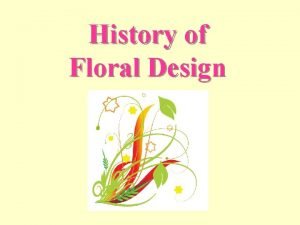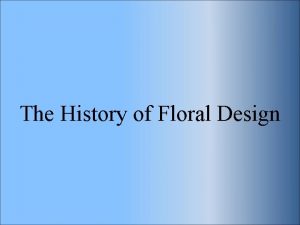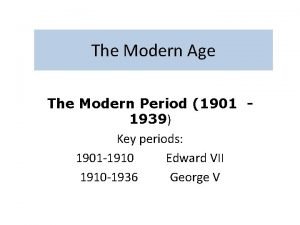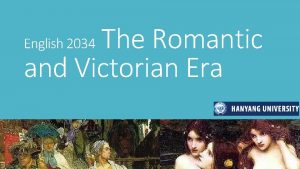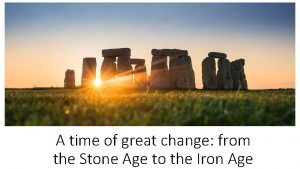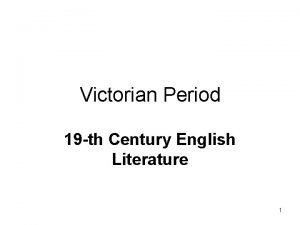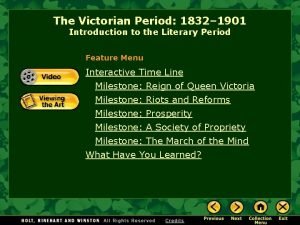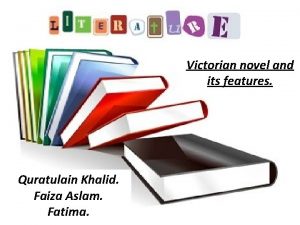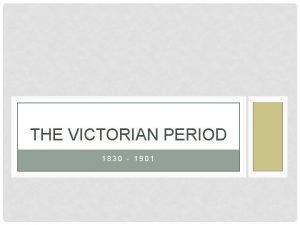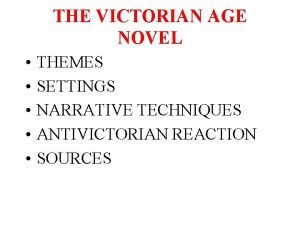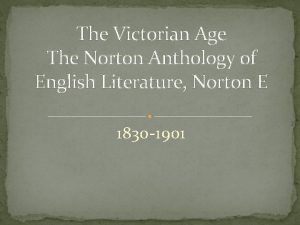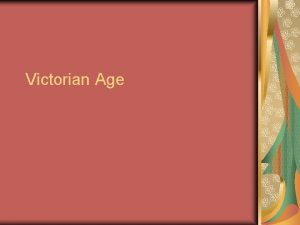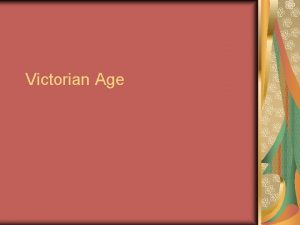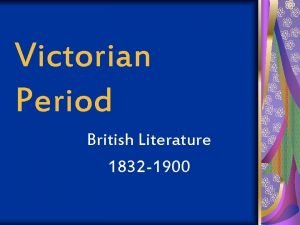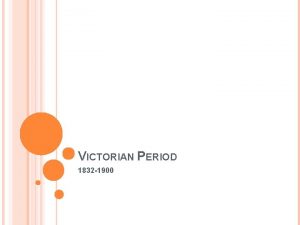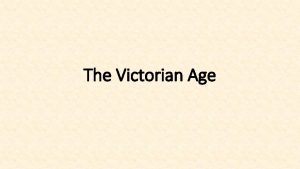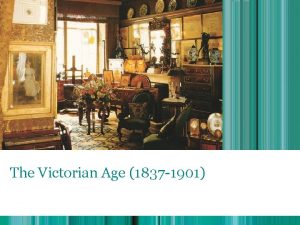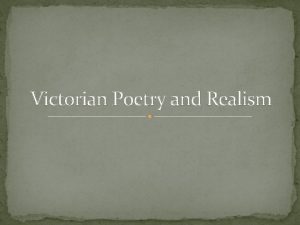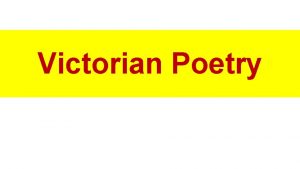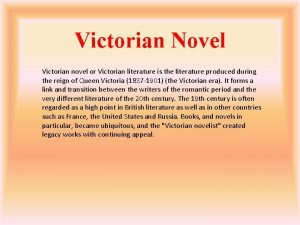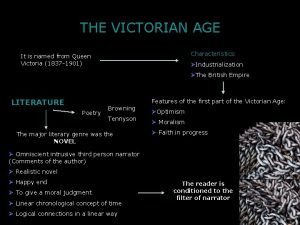The Victorian Age 1830s1900 The Victorian Period Named














- Slides: 14

The Victorian Age 1830’s--1900

The Victorian Period • Named for Queen Victoria – Reigned exceptionally long time – Symbol of stability and domestic values • Period of extreme growth and prosperity – Empire expands to control ¼ of earth – London becomes economic capitol of world – No major wars or recessions


Beginning of Modern Economy • Technology of commerce develops – Railroads – Steamships --Mass Production --Electric power • International trade escalates – Exotic goods become common • Coffee, tea, sugar, bananas – English companies become major importers/exporters

Beginning of Modern Economy • Rise of the middle class – Bankers, merchants, etc. – People with education, disposable income – Make up majority of consumers • Become backbone of English society and economy

English Become Conservative • Believed England=most perfect society – Peak of human civilization – Has right and duty to rule the world • Social codes become very strict – Every person has a clearly defined role – Society depends on each person sticking to his/her role

Society Becomes More Secular • Still predominantly Christian • Start to see nation, rather than religion, as the source of identity and morality • Science and rational thought are the keys to society – Social Darwinism – Utilitarianism

Dark Side of English Prosperity • Unregulated industry exploits workers – Low pay – Long days – Inappropriate conditions • Rapid growth of underclass, especially in cities – Major urban problems:

Dark Side of English Prosperity • Problems spill over into mainstream life – Epidemics – crime • Middle and upper classes become obsessed with the problems – What about English superiority? – Solutions within the system – The poor deserve what they are getting

Children were treated as small adults. There was no value placed upon play time or just being a kid. London was dirty and overcrowded, and technology did not keep pace with population growth.

Victorian Poetry • Heavily influenced by Romantics – Both periods saw poetry as a form of social consience – Both saw poets as social leaders – Victorians more moderate than Romantics • Romantics wanted complete social revolution • Victorians wanted changes within the system

Thematic Characteristics • Not autobiographical • Focus on fables, myths, historical characters • Make indirect comments about society • Talk about universal problems • Up to the reader to apply to life

Formal Characteristics • Interested in poetic form and grammar – Poetry should have refined language • Emphasis on external imagery – Not the narrator’s inner thoughts

Dominant Form-Dramatic Monologue • • Narrator is a character Set in a specific time and place Speaking to a specific person/group Speech leads reader to a conclusion about the narrator • Perfect example: “Ulysses” by Alfred, Lord Tennyson
 English-georgian floral design
English-georgian floral design Romans floral design
Romans floral design Victorian age and modern age
Victorian age and modern age Victorian period in english literature
Victorian period in english literature Stone age, bronze age iron age timeline
Stone age, bronze age iron age timeline Iron age bronze age stone age timeline
Iron age bronze age stone age timeline Is the victorian era named after queen victoria
Is the victorian era named after queen victoria Critical realism
Critical realism Victorian age 1832 to 1901
Victorian age 1832 to 1901 Victorian age 1832 to 1901
Victorian age 1832 to 1901 Characteristics of the victorian novel
Characteristics of the victorian novel Victorian age timeline
Victorian age timeline Victorian age in english literature notes
Victorian age in english literature notes Nickolas nickelby
Nickolas nickelby Norton anthology victorian age
Norton anthology victorian age
